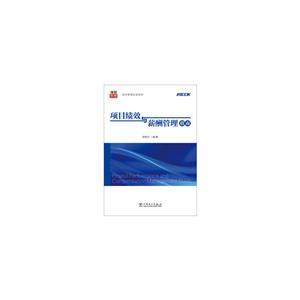节能与新能源汽车发展报告:2016:2016

|
节能与新能源汽车发展报告:2016:2016作者:中国汽车技术研究中心编著 开 本:26cm 书号ISBN:9787115448682 定价:88.0 出版时间:2016-12-01 出版社:人民邮电出版社 |
节能与新能源汽车发展报告:2016:2016 本书特色
本书共分8章,分别介绍能源形势与车用燃油消耗、节能与新能源汽车政策、乘用车市场特征、乘用车燃料消耗量情况、商用车发展情况、节能与新能源汽车技术发展情况、产品节能竞争力以及未来展望。本书立足行业、深入企业、细挖产品,围绕政策、技术、市场3个方面,从能源形势、政策引导、燃料消耗量现状、技术水平、产品竞争力、国外动态等方面展开分析和研究,试图从节能环保的角度解读中国汽车产业发展的外在表现和内在逻辑,为行业同仁提供有益参考。
节能与新能源汽车发展报告:2016:2016 内容简介
1.国内知名机构大幅度公开的汽车节能技术数据信息; 2.本书的撰写以油耗系统、公告系统、合格证系统等官方数据平台为依托,数据可靠性与准确性较高; 3.是汽车行业官方节能数据发布的唯1出版物; 4.从产业环境、政策、市场、技术等多方面对国内节能与新能源汽车进行全面深入的分析。
节能与新能源汽车发展报告:2016:2016 目录
Table of ContentsChapter 1 Energy Situation and Vehicle Fuel Consumption 8
1.1 Global Energy Supply and Demand 8
1.2 China's energy supply and demand 9
1.3 2015 vehicle fuel consumption measurement 12
1.3.1 Annual mileage 12
1.3.2 Average fuel consumption by vehicle type 14
Chapter 2 Energy Saving and New Energy Vehicle Policy Interpretation 17
2.1 Whole industry policy support 17
2.1.1 Development plan 17
2.1.2 R&D support 18
2.1.3 Production specification 19
2.1.4 Sales guidance 21
2.1.5 Using convenience 25
2.2 Direction of policy development 26
2.2.1 Government-led market transition 26
2.2.2 Shift focus from quantity to quality 26
2.2.3 Subsidy policy gives priority to competitive products 26
2.2.4 Vehicle security becomes the focus of attention 27
2.2.5 Battery recycling system needs urgent improvement 27
Chapter 3 Market Characteristics of Energy Saving and New Energy Passenger Cars 28
3.1 Market Breakdown of Passenger Car Fleet Analysis 28
3.1.1 Scale of Conventional Energy Vehicles 28
3.1.2 NEV Scale 32
3.2 Market Characteristics of Conventional Passenger Cars 35
3.2.1 Average Wheelbase Changes 35
3.2.2 Average Curb Weight Changes 36
3.2.3 Average displacement changes 37
3.2.5 Average torque changes 41
3.2.6 Power/curb-weight changes 42
3.2.7 Power/displacement changes 44
3.3 New energy passenger cars’ market characteristics 46
3.3.1 New energy passenger car’s technology development route 46
3.3.2 New energy passenger car enterprises’ distribution pattern 48
3.3.3 New energy passenger cars’ BEV electric range distribution 50
3.3.4 New energy passenger car using field distribution 51
3.3.5 New energy passenger cars’ regional promotion distribution 53
Chapter 4 Passenger Car Fuel Consumption 55
4.1 Changes in fleet-wide average fuel consumption 55
4.1.1 Changes in fleet-wide average fuel consumption 55
4.1.2 Changes in domestic and imported passenger cars’ average fuel consumption 56
4.1.3 Changes in average fuel consumption of local and joint venture brands 57
4.2 Enterprises’ average fuel consumption compliance performance 58
4.2.1Enerprises’ overall compliance performance 58
4.2.2 Compliance status quo of top ten manufacturers 59
4.2.3 Top ten compliant enterprises 63
4.3 NEV’s impact on average fuel consumption 66
4.3.1 Impact of NEV on fleet-wide average fuel consumption 66
4.3.2 NEV investment and CAFC compliance path selection 67
Chapter 5 Development of Energy-saving Vehicles and New Energy Commercial Vehicles 73
5.1 Fuel consumption of commercial vehicles 73
5.1.1 Fuel consumption of light-duty commercial vehicles 74
5.1.2 Fuel consumption of heavy-duty commercial vehicles 81
工业技术 汽车与交通运输 汽车
在线阅读
- 最新内容
- 相关内容
- 网友推荐
- 图文推荐
零零教育社区:论坛热帖子
| [高考] 2022 西安电子科技大学《软件工程》大作业答案 (2022-04-25) |
| [家长教育] 孩子为什么会和父母感情疏离? (2019-07-14) |
| [教师分享] 给远方姐姐的一封信 (2018-11-07) |
| [教师分享] 伸缩门 (2018-11-07) |
| [教师分享] 回家乡 (2018-11-07) |
| [教师分享] 是风味也是人间 (2018-11-07) |
| [教师分享] 一句格言的启示 (2018-11-07) |
| [教师分享] 无规矩不成方圆 (2018-11-07) |
| [教师分享] 第十届全国教育名家论坛有感(二) (2018-11-07) |
| [教师分享] 贪玩的小狗 (2018-11-07) |






